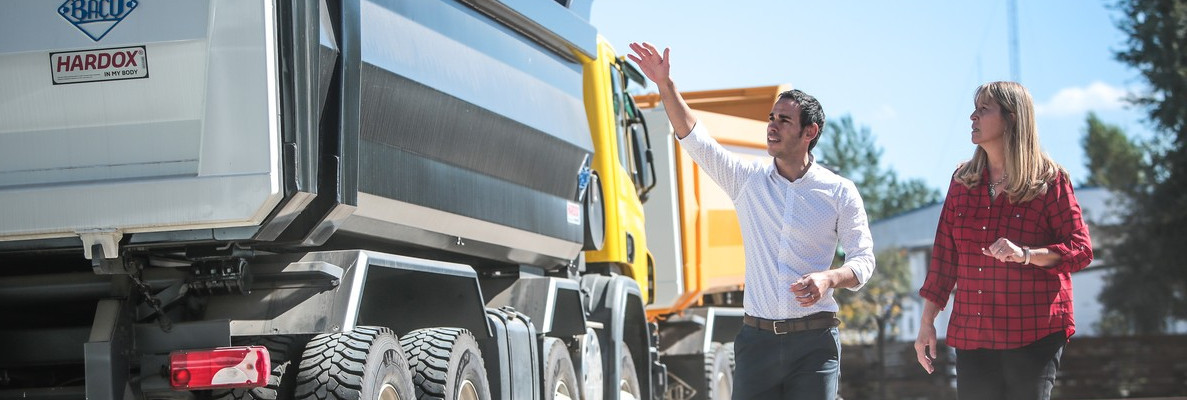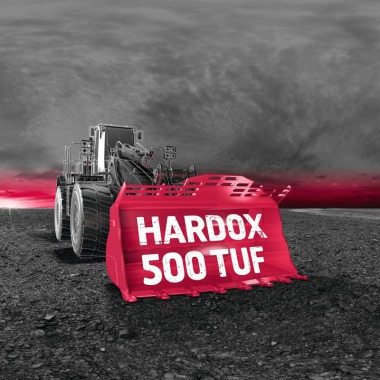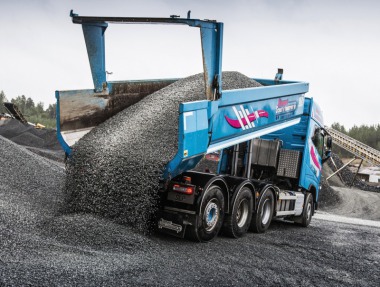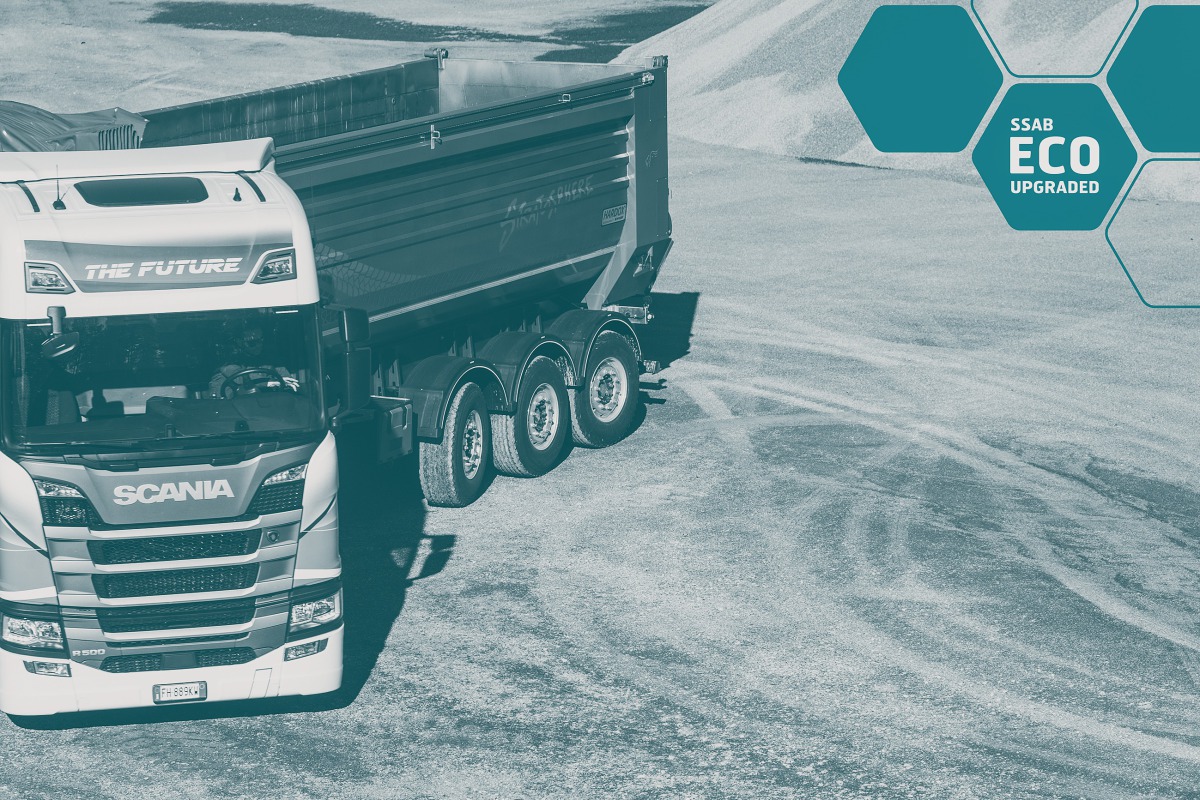Mantella introduces groundbreaking tipper trailer
09.05.2019
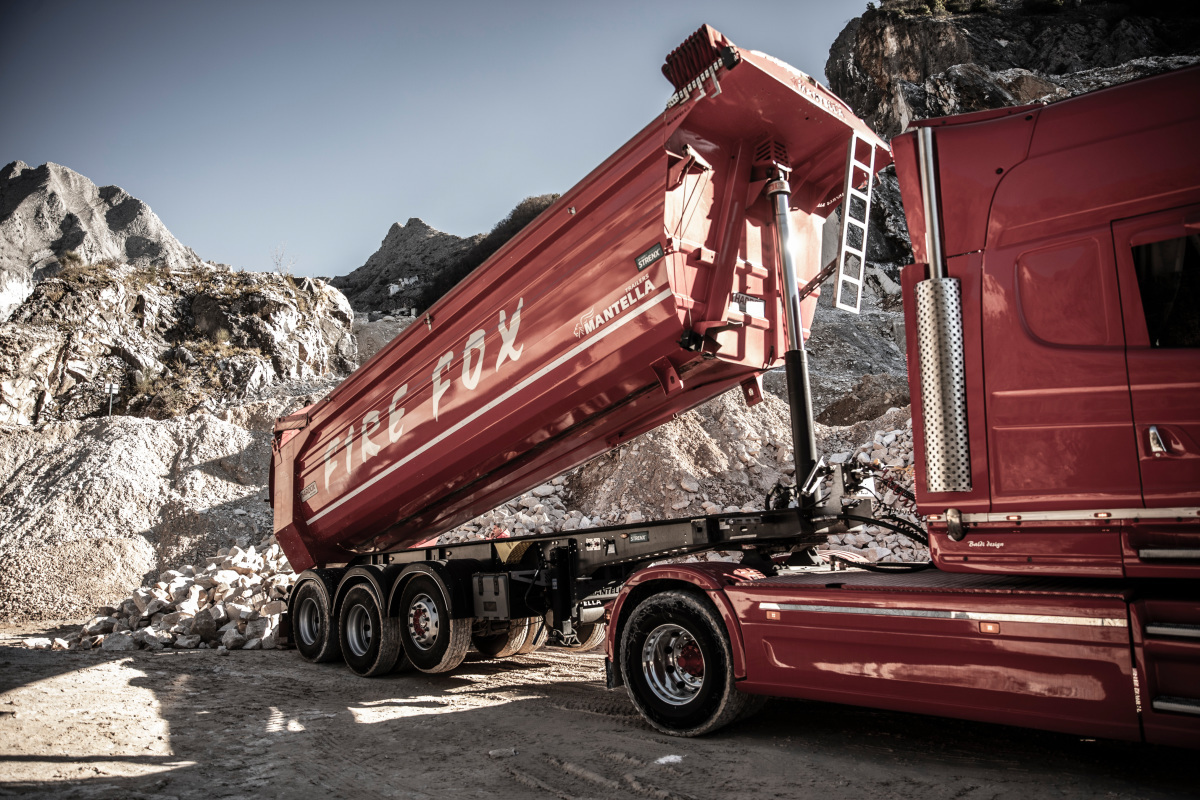 1 Mantella’s tipper trailer is more than 500 kg lighter than a conventional design
1 Mantella’s tipper trailer is more than 500 kg lighter than a conventional design
Source: SSAB
Mantella revolutionized the design of its innovative Stratosphere tipper trailer by implementing major design advances in the use of high-strength steel. The company has taken full advantage of the latest high-tech materials developed and produced by the Nordic steel manufacturer SSAB: Hardox® 500 Tuf and Strenx® 960.
510 kg more payload
The combined weight reduction of using abrasion-resistant Hardox® 500 Tuf in the body and Strenx® 960 in the chassis is 510 kg (1124 lbs.) compared to the previous design, which translates to an increased payload of 510 kg (1124 lbs.) on every trip. And higher load capacity is what practically every customer is looking for. The new design won the international Swedish Steel Prize 2018 (Fig. 1).
Reduced weight improves sustainability
Mantella S.r.l. is a family business located in Lamezia Terme in the Catanzaro province of southern Italy. The company has set ambitious goals to design stronger and lighter semitrailers that will carry larger payloads while saving fuel and reducing CO2 emissions at the same time.
Reducing emissions is important since road transport accounts for 17.5 % of overall gas emissions in Europe. By 2050, these emissions will need to be at least 60 % lower than in 1990 and be firmly on the road towards zero.1 “By lowering fuel consumption and CO2 emissions per ton kilometer we are contributing to a more sustainable world. To successfully develop this lightweight trailer, the entire company has been involved – design engineers, production, management and purchasers. The Stratosphere trailers make use of all the benefits obtainable from SSAB’s high-strength steel grades Hardox® 500 Tuf and Strenx® 960. Naturally we are also in the process of implementing stronger and lighter design solutions for our other trailer series,” says Gregorio Mantella, Plant Director at Mantella S.r.l.
Hardox® 500 Tuf saves 365 kg (805 lbs.) of body weight
Stratosphere trailers from Mantella have tipper bodies made of Hardox® 500 Tuf wear plate. This new Hardox grade delivers longer wear life while having the same toughness as the previously used Hardox® 450 grade. Thanks to the higher wear resistance of Hardox® 500 Tuf, Mantella could reduce plate thickness by 1 mm (0.039”). This saves on average 365 kg (805 lbs.) of body weight. Reducing the thickness is possible thanks to the increased hardness in combination with the high toughness and dent resistance that comes with Hardox® 500 Tuf. Even after many years of use, the steel will be thick enough as not to compromise the integrity of the body.
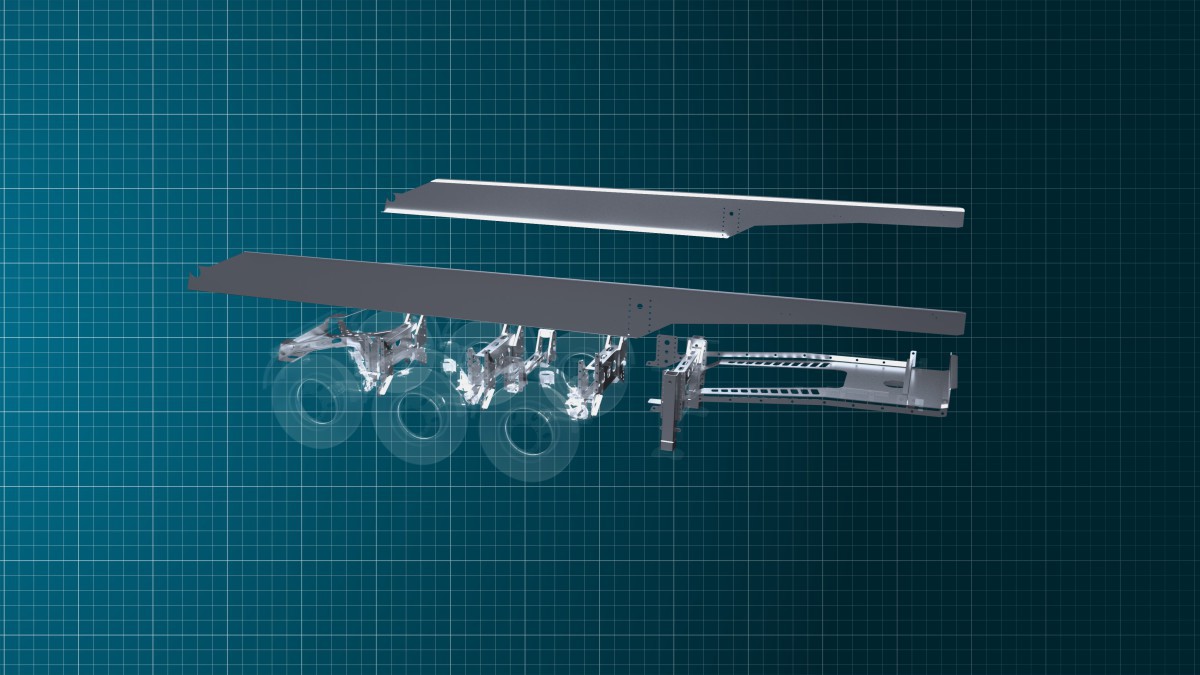 2 Manufacturing a bended longitudinal beam from a single sheet of Strenx® 960 takes on average 50 % less time compared to a welded I-beam
2 Manufacturing a bended longitudinal beam from a single sheet of Strenx® 960 takes on average 50 % less time compared to a welded I-beam
Source: SSAB
Hardox® 500 Tuf combines the best properties from the Hardox® 450 and Hardox® 500 wear steel grades. It has an unusually narrow hardness window of 475 to 505 HBW. The relative wear life for Hardox® 500 Tuf can be 30 to 50 % longer compared with Hardox® 450. The high toughness gives excellent resistance against dents and cracks when the steel is hit by sharp and heavy objects. Hardox® 500 Tuf has a guaranteed impact toughness of 27 J at -20°C (20 ft-lb at ‑4°F) and, for 20 mm (0.79”) plate, a typical value of 45 J at -40°C (20 ft-lb at at ‑4°F).
Body designed for stiffness
When using a thinner material, the trailer tipper body has to be designed in a way that ensures the stiffness and overall stability of the body. When raising a fully loaded body with a front mounted hydraulic cylinder, the body experiences high stresses. If it’s not designed correctly it could result in a sudden buckling of the sides.
To counteract this, Mantella incorporated a number of design changes such as adding horizontal bends to the side panels. This gives the necessary stiffness to the entire body. The hydraulic cylinder attachment, top rails, rear frame and tipping pivots have also been redesigned for added torsional stiffness (Fig. 1)
Redesigning with Strenx 960 for productivity and performance
Mantella challenged the conventions when the company decided to produce the longitudinal beams of the chassis by advanced bending of a single flat strip of Strenx® 960. Instead of making a traditional I-beam by welding flanges and web together, Mantella used press bending to produce a Z-shaped form without welding (Fig. 2).
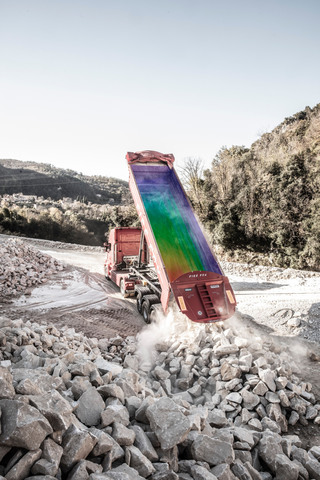 3 With the help of software such as SSAB’s WearCalc it’s possible to calculate the wear rate already before the tipper body is produced. The different colors show the sliding wear after unloading of the tipper trailer. Data from the calculations provide the manufacturer with the basis for recommendations for material upgrades and wear design
3 With the help of software such as SSAB’s WearCalc it’s possible to calculate the wear rate already before the tipper body is produced. The different colors show the sliding wear after unloading of the tipper trailer. Data from the calculations provide the manufacturer with the basis for recommendations for material upgrades and wear design
Source: SSAB
Tipper trailers typically operate off-road under extremely demanding conditions. They are subjected to a variety of severe load cases that are difficult to predict. Fatigue usually sets the design limits. Mantella has invested a great deal of development work in weld technology and the placement of welds to optimize fatigue strength. By eliminating the welded I-beams and by leaving the flanges untouched by welds, fatigue strength of the chassis is greatly increased.
Light as aluminum, with the benefits of steel
The new trailer chassis in the Stratosphere series weighs in on par with aluminium, and has all the durability, fatigue strength and production advantages of steel. The Z-beams take about 50 % less time to produce compared to welded I-beams. In addition, lateral stiffness is increased by 10 % and torsional stiffness by 12 %.
By upgrading to Strenx® 960 steel, Mantella not only offers its customers a chassis that is 145 kg (320 lbs.) lighter. It also has superior mechanical properties and improved road handling.
Resulting savings
·A Stratosphere trailer has a 365 kg (803 lbs.) lighter body and a 145 kg (320 lbs.) lighter chassis, allowing for an extra 510 kg (1124 lbs.) of payload for every trip
·It can save 12 000 l (3170 gallons) of fuel and 30 tons (60 000 lbs.) of CO2 during 12 years of service 2
·The vehicle can earn € 0.07 extra for every km, or € 8400 per year, and pay for itself in 4 to 5 years 3
1 European Environment Agency
2 120 000 km/year, 75 % full load, 47 l/100 km to 25 l/100 km
3 COMPETE Report, European Commission

